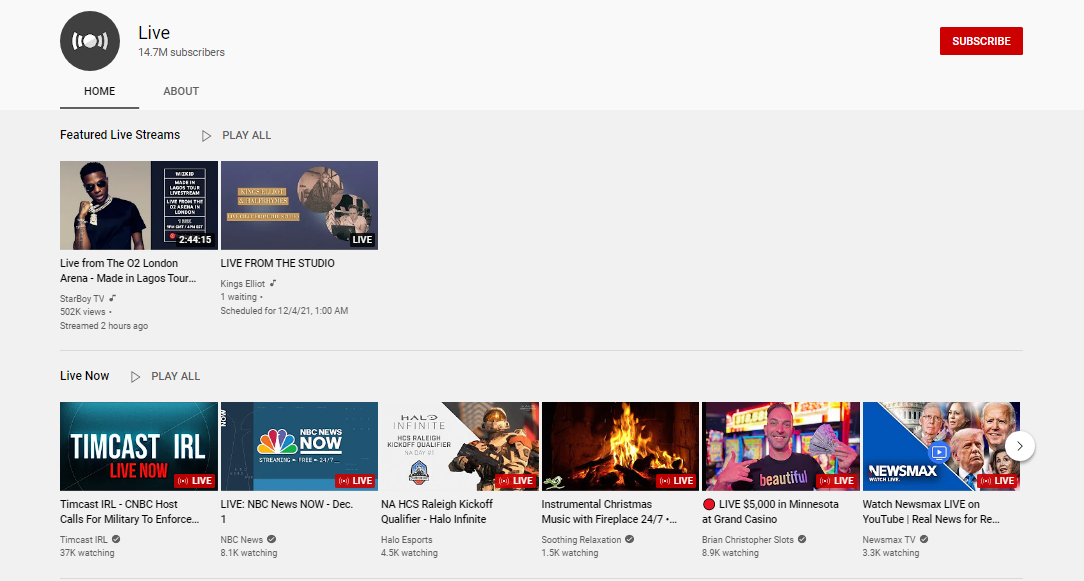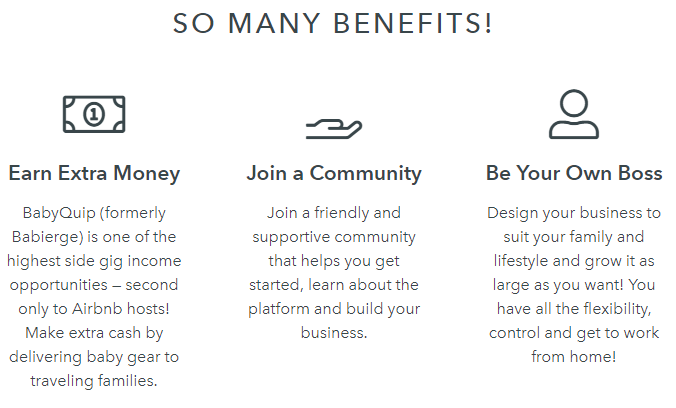If you have a love for fitness, whether as a professional or just someone who loves keeping healthy, I’ll let you in on a little secret: you can make money from it!
With the rise of health movements such as vegan, keto, and paleo diets, coupled with exercise trends such as HIIT and circuit training, it’s safe to say that the fitness industry is booming and will only continue to grow.
Now is the perfect time to jump in!
In this article, we run down how to make money in fitness so you can start working toward both your fitness goals and your financial goals.
14 Ways to Make Money in the Fitness Niche
I’ve broken down the top ways people are making money in the fitness niche.
Your best bet is to become a trainer of some sort, but you can also help people figure out nutrition, or even become a brand ambassador and make money as an influencer.
Find an area that interests you and run with it.
Make money on the side as an influencer:
Brands are always looking for feedback from influencers and ambassadors to develop their product lines and the fitness industry is a perfect match.
The following companies pay CASH.
1. Become a personal trainer
Whenever an average Joe thinks of the fitness industry this is probably one role that stands out, and with good reason.
Most people, really really hate the gym, but this just means opportunity. Personal training is highly profitable if done correctly.
Starting off you will need to get certified. Certification helps you to build trust with both gyms you may want to work in, and clients you want to work with.
These bodies all supply legitimate certifications:
- American Council on Exercise (ACE)
- National Academy of Sports Medicine (NASM)
- International Sports Sciences Association (ISSA)
- American College of Sports Medicine (ACSM)
- National Strength and Conditioning Association (NSCA)
After getting certified, it’s often best to then look to specialize in an area. Ideally, this should be something that you yourself would be interested in, but it pays to take a look at what’s popular as well.
From that point, you can then start applying to local gyms and fitness centers to start working for them or hiring out facilities with them.
Another approach is to look at teaching at multiple gyms in different areas, which helps expand your network of clients and make sure that you have less risk of clients drying up.
2. Teach group sessions
Group fitness training is quite different from the one-on-one approach of personal training.
In group training, a trainer leads an exercise class while coaching all of the participants, making sure that everyone is using the correct form.
Group training might seem like the obvious choice: more people equals more money, right? Well, that’s not always the case; the fees for group fitness are often much lower than personal training.
However, it doesn’t mean that you can’t make money from it. Plus, running this sort of training has many benefits.
First, it gets you in front of a lot of different people, helping you expand and refine your personal brand.
Second, it allows you to promote additional services, such as one-on-one training sessions, dietary and nutrition plans, your own products, and other services that help you earn more (as we’ll see below).
Lastly, it allows you to broaden your skill set by offering a variety of classes to a variety of people. For instance, you could teach classes for kids or older people, CrossFit and other short classes for busy professionals, and so on.
Keep in mind that you’ll still need certification to be able to go into group training.
3. Expand to online coaching
Once you’re working as a personal trainer or a group trainer, a natural offshoot is to become an online fitness coach.
Not everyone has the luxury of having a quality gym nearby or being able to afford a personal trainer. However, with the rise of high-speed internet, they don’t need to!
You might already have existing clients as a personal trainer, but going online gets you an unlimited client base. You can always find a new audience to market your services.
Online coaching can be done via video chat apps and ideally via two-way video feeds so you can check your client’s form and correct it if you need to.
While you’re online with them, you can also pitch your other products, such as your nutrition and training guides.
It’s not ideal from a fitness training perspective but think of it as a middle ground between a fitness DVD and actual personal training.
What’s more, people are willing to pay to be able to get fitness training from the comfort of their homes.
4. Develop training and nutrition plans
Not everyone wants or needs to head into a gym or hire a personal trainer.
What they are looking for instead is expert guidance on their diet or pointers for their own training regimens at home or at the gym so they can tailor their fitness routines into their specific lifestyle.
Meal plans are a popular product in the fitness niche, especially if you create ones that are based on diets that are all the rage, such as vegan, keto, paleo, Atkins, HCG, or any other diets that are touted to promote health.
Workout plans are equally popular, especially for beginners to a certain kind of workout routine, such as strength training, HIIT, CrossFit, calisthenics, etc. Workout plans that target specific areas of the body also have a wide audience.
Meal plans and workout plans are ideally created in a digital format, such as an ebook or PDF. Creating digital products minimizes your overhead and makes them easier to sell, as there are plenty of free or at least inexpensive digital marketplaces where you can sell these plans.
You can also offer custom training and nutrition plans at a higher price to specific clients with specific needs. These plans can be based on a standard template and tweaked with little to no work to fit the needs of a specific client.
You can also sell your nutrition and training plans together as bundles.
If you’re already working as an online or offline personal trainer, you can offer these as extras to your existing clients.
5. Start a meal delivery service
If you have culinary training aside from nutrition certifications, you can take meal planning a step further and actually create the meals yourself for delivery to your clients.
You can start small and deliver to nearby addresses at first. As your business grows, you can start getting all the necessary permits (your health license is the most important one) and hire a few people to help you prepare and deliver the meals.
The good thing about creating and selling your own meals is that you can bundle this service with your workout plans and increase your income.
Of course, turning your house into a custom kitchen isn’t going to be simple, especially considering the various dietary requirements you’ll have to cater to.
But if you have the knowledge and the capital, a meal delivery business is a lucrative way to make money in the fitness industry.
6. Sell your digital products
If you’ve already gone into creating nutrition and workout plans as digital products, it’s not that far a leap to create a fitness video course.
Of course, producing a video course requires more requirements: a high-quality webcam, editing software, activewear and equipment that look good on camera, and snappy background visuals and music to come up with a polished video with high production value.
If you’re not an expert in video production, you’re going to have to hire professionals to take care of that for you.
All these increase your overhead costs significantly, so if you don’t have a steady, strong client base yet, you’ll struggle to recoup your losses.
Now, you have a suite of digital products that you can sell in various online stores. For instance, you can sell your ebooks on the Amazon Kindle store.
You can also build your own website and sell your digital products there.
7. Make a fitness app
A mobile app is yet another digital product that you can create or have a developer create for you.
Even fitness enthusiasts aren’t without their phones in their hands all the time. So why not make it easier and more accessible for them to track their fitness goals through their phones?
You can run advertisements on your app so you can earn some passive income from that. Or, you can have users download the app for free and then offer paid features and upgrades so you can earn more directly from those.
The good thing here is you can incorporate your existing digital products into this fitness app.
You can make it into a nutrition app, where users can choose a meal plan template or create their own. You can make it into a workout app, where users can choose a specific workout to do or create their own with individual exercises. Or, ideally, you can make combine them into one app.
8. Establish a tangible fitness product line
As I’ve mentioned, not everyone can afford to go to the gym, and even some of those who can afford it actually prefer to work out from home.
If you can find a supplier of high-quality home fitness equipment that you can trust and can sell you those products for an inexpensive price, you may be able to make money in fitness products.
Here are some examples of fitness products that you can sell:
- Yoga mats/exercise mats
- High-impact floor tiles
- Dumbbells
- Lifting racks
- Kettlebells
- Exercise balls
- Medicine balls
- Sandbags
- Boxing bags
- Yoga blocks
- Jump ropes
- Battle ropes
- Resistance bands
- Foam rollers
- Plyo boxes
- Steppers
- Water bottles
- Sports socks/yoga socks
- Sports shoes
- Sports bras
- Leggings
- Sports bags
- Massage guns
Selling your own product line is not for the fainthearted but this can be a real money-spinner.
9. Write about fitness
As the fitness niche is exploding, written content about fitness is also highly in demand.
Blogs, magazines, journals, and other publications are on the lookout for fitness writers who can create compelling, expert content that appeals to fitness enthusiasts, both beginner and advanced.
You may even get a higher rate than usual, especially if you have certifications, years of experience, and an existing fanbase who read and share your articles.
Another way you can earn money through writing about fitness is if you start a blog and write articles for it. You aren’t going to get paid directly for your articles, but your blog will help you in your money-making endeavor by building your online reputation and providing you a platform to promote your products and services to your audience.
10. Be a motivational fitness speaker
Fitness is not only physical; you can only meet your fitness goals when you’re mentally focused and motivated to do so.
Another way to help spread your brand, expand your customer network, and make money while doing it is to be a fitness resource speaker.
You could contact local businesses, schools, and communities to offer your services for free or at a cost.
Talk about fitness and how your specific audience can benefit from incorporating fitness into their lives.
For example, you can talk to businessmen about how having even the simplest fitness routine keeps their minds sharp.
You could discuss ways older people can stay healthy and active at a local retirement home. You could talk to kids about how an unhealthy lifestyle will affect them later in life.
The more you get known, the more benefits it can bring to your business.
11. Set up and attend unique events
Gyms often have everything a person needs to get fit and stay healthy, but they can be boring and sometimes scary places to visit.
By offering more unique options, especially outdoor events, you can help create a name for yourself while making money.
What sort of events could you run? How about:
- Bootcamps
- Assault courses
- Zombie runs
- Hiking and walking trips
- Mini Olympics
- Dancing
- Parkour
- Outdoor Calisthenics
These events are perfect to promote your brand and your fitness products and services to new audiences.
Also, these types of events can help bring communities together and offer opportunities for other local businesses as well to promote their own products and services.
Thanks to technology, it’s even possible to bring these events online through livestreaming, expanding your audience and increasing your potential earnings through ads or sponsorships.
12. Become a social media brand ambassador
Don’t write off social media yet as a way to make money from fitness.
Social media is an incredible tool for fitness trainers who want to get themselves out there. By showing people how to get fit via YouTube, Instagram, and Facebook, it’s easy to get a large following.
With a large audience and engagement, you can then apply to become a brand ambassador, or even be approached by companies looking for people to promote their brand.
A brand ambassador is essentially modern jargon for having a sponsor. You do shout-outs, reviews and generally promote a brand in return for cold hard cash, affiliate commissions, and free swag.
I’ve covered what it takes to become a brand ambassador in more detail here.
13. Start your own blog
Writing a fitness blog is certainly not the quickest way to make money from fitness, but it has the most potential to make money from fitness, in terms of the different directions and activities you can do from your blog.
Firstly, you will need your own website, and to have a love for writing about fitness (at least until you can get some other writers to write for you).
Writing about the trials and tribulations of attaining a healthy body and keeping it can attract not only people wanting to get started but even those already on their journey wanting more ideas, tips, and tricks.
A fitness blog can make money in a variety of ways.
You can make money directly by placing ads on the site, using affiliate marketing to promote fitness products you trust and recommend, selling your own products and services, and even through flipping the website if it becomes popular enough to be worth six digits.
Indirectly, the site can garner more real-life customers for you as a personal trainer. It can also help you to find sponsors and brands interested in having you promote their products.
The cost of setting up a blog is minimal, and you don’t even need to be certified to offer advice and help; you could simply be a fitness fan documenting and showcasing your own journey in the world of fitness.
The easiest way to get started with your own blog is through a platform like Wealthy Affiliate. It’s completely free to get started and they’ll give you all the tools and training you need to get up and running.
14. Lend your expertise as a consultant
When you hear “consultant,” you might automatically think of financial consultants or management consultants.
But companies, schools, and other organizations may feel the need the services of a fitness consultant to develop programs that cater to the physical fitness needs of members of these organizations.
Requirements may vary depending on the client; some may hire you with a high school diploma, while others may require you to have master’s degrees in nutrition and sports science or other related courses.
Having degrees and certifications would certainly be an advantage when it comes to the hourly pay you can charge, but don’t underestimate the value of experience.
If you’ve worked as a personal trainer for years, you’d certainly have a leg up over those who are certified but don’t have enough hands-on experience.
The Bottom Line
Whether you’re already a professional fitness instructor or you just simply love keeping in shape, there are many ways to make money with fitness.
Hopefully, one or more of these 14 ideas will help you make more money in the fitness niche!
Here’s one more thing to keep in mind:
Start working on building your following and brand today.
The earlier you start getting your name out there, the better. Don’t wait until the new year to try and capitalize on all the resolutions or the summer to make money off those who want “summer bods.” You’ll be too late by then.
Which one of these ways to make money in fitness are you most interested in? Or have you tried before? How was it? Tell us your stories in the comments below!































